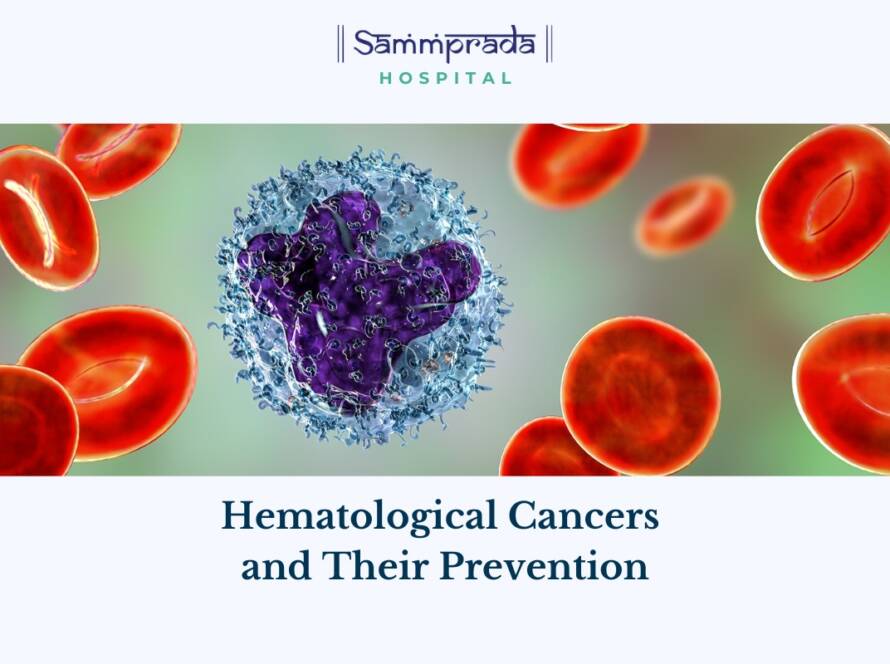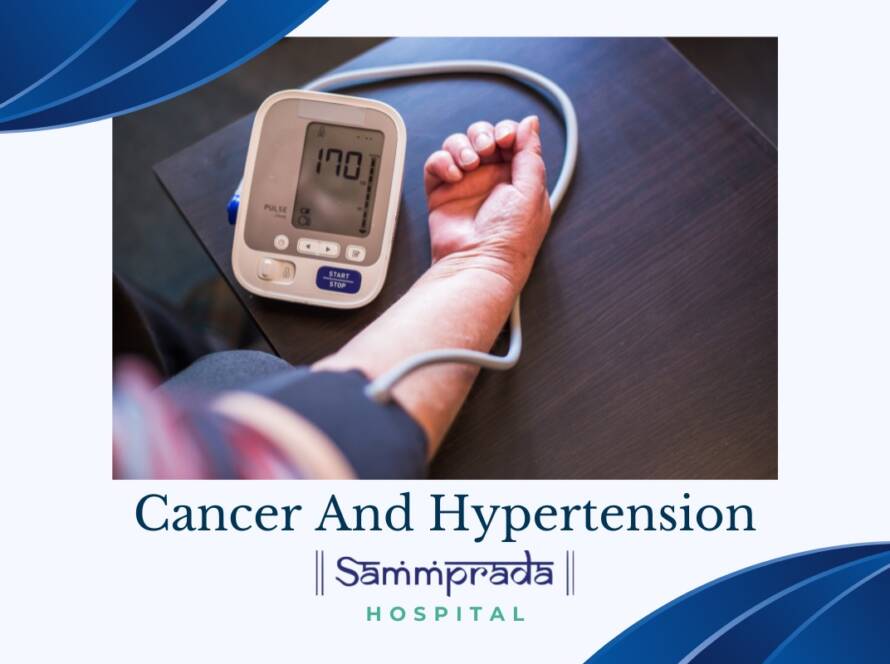Introduction
Whether a person is healthy or suffering from any illness, the best diet to prevent cancer is extremely important. For patients either taking treatment or in the process of recovery, there is no one-size-fits-all dietary plan. The diet for cardiac care differs from those seeking care for urologic disease, and likewise, oncology patients have a cancer-specific dietary plan.
At Sammprada Onco+Wellness Hospital, a nutritionist prepares a diet plan as per the advice of the treating Physician. A Heart specialist would recommend a diet low in fats while a kidney specialist will prescribe a low sodium, protein diet. Similarly, the best diet to prevent cancer for patients includes high-calorie, high-protein foods.
Micronutrients and their role
Micronutrients are naturally carried in macronutrients, and malnutrition among cancer patients is the main reason for inadequate micronutrient status. A severe form of cancer-associated nutrient deficiency is physically seen as cachexia.
The nutritional status of the patient influences the success of treatment and healing process in cancer patients. Malnourished patients have a deficient immune status and do not tolerate the treatment, including its ill effects on various organs and metabolic functions.
When the patient’s medication is supplemented with selected micronutrients (eg.: selenium, vitamin D), available evidence indicates improvement in patient compliance, fewer adverse effects (from both treatment and disease), and a lower rate of treatment discontinuation.
Nutritional supplementation tailored to an individual’s background diet, genetics, tumor histology, and treatments may yield benefits in subsets of patients.
Anti-oxidants
Anti-oxidants offer protection against the damage caused by free radicals, which otherwise play an important role in the development of many chronic diseases including cardiovascular disease, aging, anemia, cancer, and other inflammatory disorders. Such free radicals are a result of the addition or subtraction of charged electrons from atoms within the body. Natural antioxidants are derived from plant sources, and such colored fruits and vegetables have high antioxidant activity. Many dietary menus include oranges, lemons, red beans, berries, and broccoli, which have been proven to contain a high amount of antioxidants.
Not all free radicals are harmful. They are crucial for a variety of biological activities, including cell division. They aid in the communication between cells and help the immune system of the body. However, if there are too many free radicals in the body, they can cause serious harm to the tissues. It potentially worsens inflammatory conditions including diabetes, high blood pressure, cancer, and heart disease.
Among vitamins that possess antioxidant properties, E and C vitamins are the most important ones. Carotenoids (carotenes and xanthophylls) are yellow, orange, and red pigments found in fruits and vegetables. An important component of plant nutrients is phenolic compounds, which are secondary metabolites of plants. Flavonoids are critical in cell signaling pathways in the body, and exhibit properties useful for human health. Our experienced Physicians and the allied healthcare team can assist in identifying your nutrient deficiencies, and suggest a suitable diet plan. Sammprada Onco + Wellness Hospital offers evidence-based services in this regard.
Fibers
Fibers in our diet cleanse the gastrointestinal tract, thus reducing the risk of diverticulitis and colorectal cancer. Evidence shows that fibers lower the levels of cholesterol, control levels of blood glucose, and promote heart health and weight management.
Evidence indicates the role of gut microbiome in the body’s immune response and improvement in tumor response to immunotherapy. High fiber intake is known to promote healthy gut microbes, which in turn enables better response to cancer treatment.
Dietary fiber provides several advantages in the prevention of ailments like colon cancer, rectal cancer, heart disease, type 2 diabetes, digestive disorders, and others. Therefore, the best diet to prevent cancer including this ingredient is vital to your diet plan.
Conclusion
A balanced diet can prevent the occurrence of many diseases. A balanced diet should contain an appropriate quantity of micronutrients, antioxidants, and fibers apart from carbohydrates, proteins, and fats. Micronutrient supplementation is provided along with treatment for both cancer and cardiac care.
At Sammprada Onco+Wellness Hospital, the healthcare team assesses the patients’ diet and weight history as part of the nutritional assessment. To improve the patient’s nutrition, appropriate counseling, and dietary changes are advised. The goal of nutrition therapy in patients with cancer is to enable a better quality of life and control symptoms of distress.


